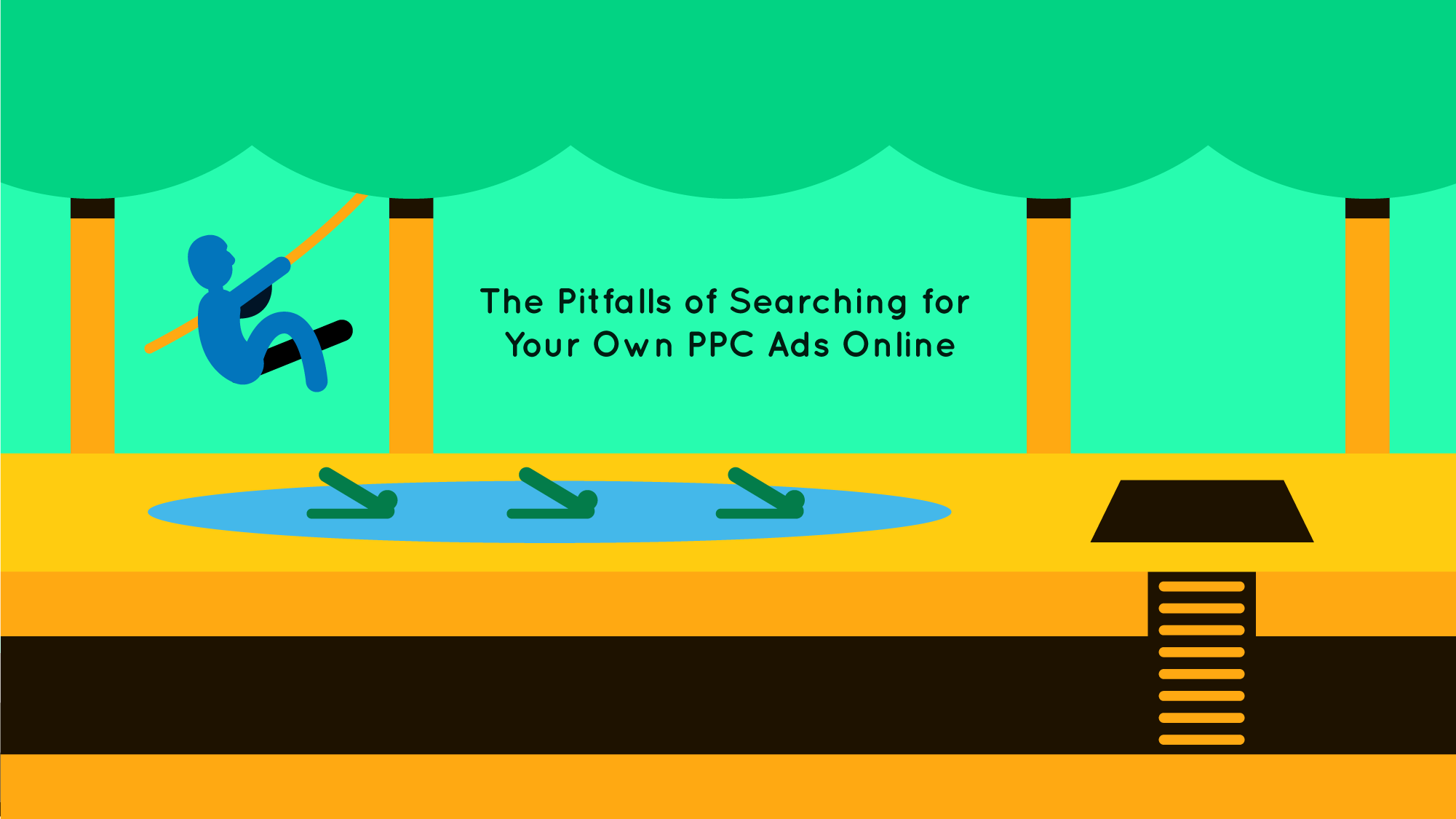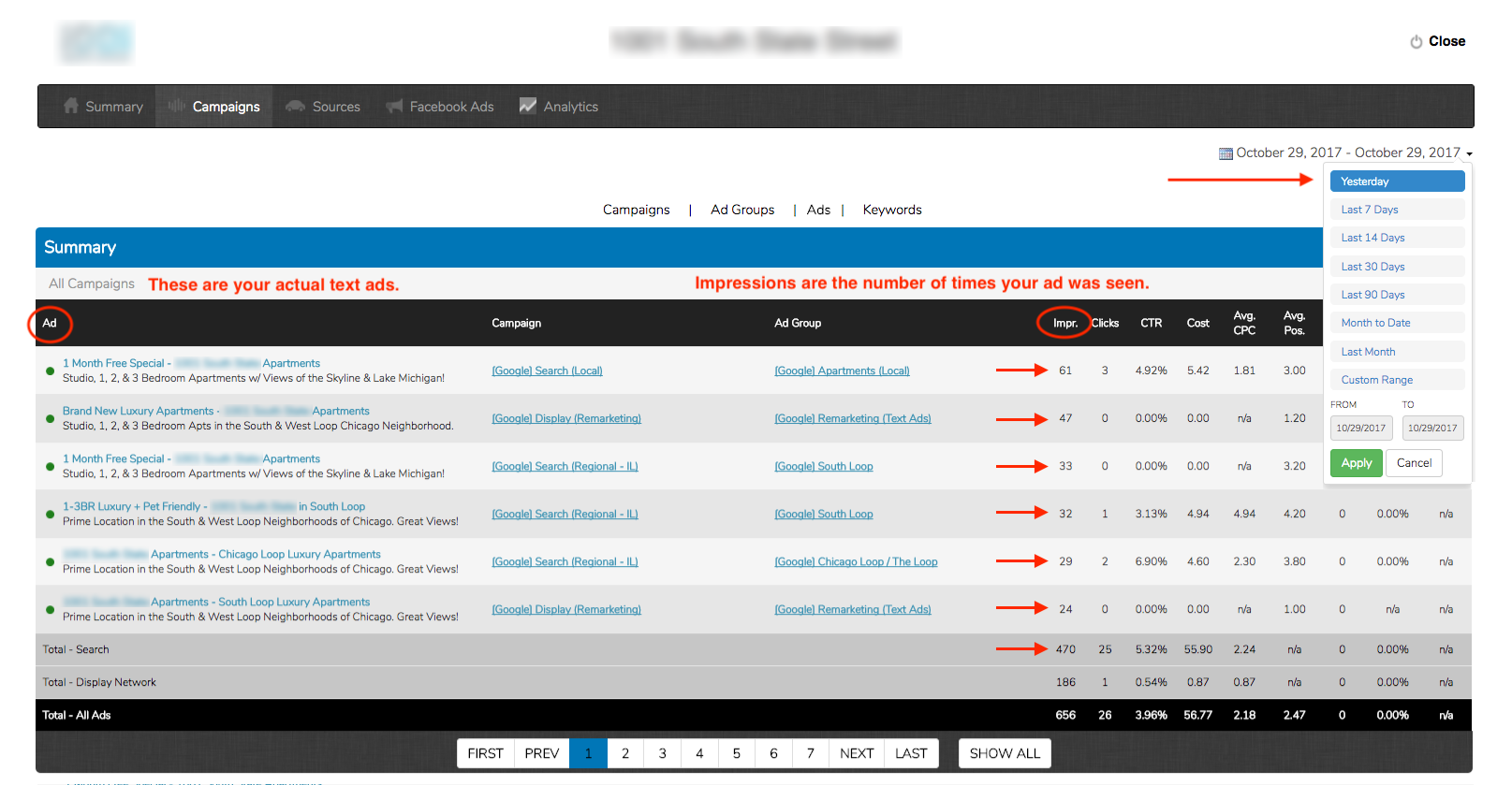
The Pitfalls of Searching for Your Own PPC Ads Online
Launching a digital advertising campaign can be exciting. You submit a budget proposal to your owner, review an initial keyword report and display ad designs, and finally get the green light to launch your apartment community’s first AdWords campaign. So it’s only natural that you’d want to witness the fruits of your labor by searching for your ads online. However, your desire to validate the decision you’ve made to invest in online advertising is not without caveats.
I sat down with Christian Swanson, our Director of Media Strategy, to talk about the pitfalls of searching for your ads online, and he shed some light on how it does more harm than good to your bottom line.
“One limitation to searching your own ads to see where you rank is that the ads you see when you search aren’t necessarily the same as others will see since we’re targeting a potential renter using geo pins and demographics,” shared Swanson.
Why Googling Your Ads Doesn’t Work
“Why can’t I find my ads online?”
“Why aren’t my ads showing up in search results??”
“Where are my ads???”
We get asked some variation of these questions almost every week. And perhaps worst of all, we hear:
“My owner has been searching for his home and his office but can’t find the ads and he’s getting pretty upset about it.”
To set the record straight once and for all, there is a perfectly valid reason why you, the developer; you, the property manager; or you, the multifamily marketing director, are not seeing your ads when you try to Google them. A few reasons actually…
- We’re not targeting you! If our ads showed up for you, and you don’t fit the parameters of your target audience or your ideal resident, then we wouldn’t be very good at our jobs. But we are, and we’ve got the awards to prove it.
- Your IP address or Google cookies may be blocked. If you keep searching for your owns ads, and you don’t click on them when they do show up, Google is going to stop showing them to you because it thinks the ads aren’t relevant to you. This not only reinforces our first point—we’re not targeting you—but also damages your ad’s performance in the eyes of Google and potentially increases the cost they charge when someone else does click on your ad. Yep, that’s right. Even by not clicking on your ads, you are costing yourself money. Think of it this way: Google is motivated to serve ads up to people who will actually click them because that’s how they make $$. So, when you don’t click after seeing the ad once, Google will show you something else to try and get that click and get paid.
- Your ad is not necessarily running at the moment. Ideally, you want your ads to run when the people who are most likely to take action are searching. So there could be times of the day (or even days of the week) when, in order to optimize your limited budget, your ad will not be running. In most cases, we’ve planned the specific times and days that we want the ad to run, but there are also times when the ad stops running because Google has unexpectedly depleted your daily budget.
- Your ad is being impacted by your limited budget. Depending on your budget, the cost-per-click, and the number of competitors, your ad will likely not appear in every search that it applies to because doing so would overspend your budget. We have access to this number, called the Impression Share Lost to Budget, and can share this with you as you consider updating your spend budget.
“Google uses multiple factors to determine which ads are shown to whom. Just because you aren’t seeing the ad doesn’t mean that thousands of searchers aren’t seeing them every day,” said Swanson.
How Searching For Your Ads Actually Hurts Your Campaign
Now that you have a better understanding of why you may not be able to see your ads, let’s explore the impact that searching for your ads has on your overall campaign. From our standpoint, there are two major considerations:
- Scenario #1: You search for the ad and you click on it.
- Scenario #2: You search for the ad and you don’t click on it.
In either scenario, your Quality Score is at risk; the higher the score, the more relevant the ad. If you search for your ad, click it, and leave the page without any meaningful interaction, Google interprets this behavior as the page not being relevant to your search term. So now, Google is less inclined to show your keywords for that particular search term again. Conversely, if you search for your ad, and don’t click it, Google interprets this behavior as the ad not being relevant. Either way, your Quality Score suffers, as a result, your ads get lower placement, and you pay a higher cost-per-click, resulting in a higher cost per acquisition.
The Proper Way to View Your Ads Without Affecting Your Quality Score
So at this point, you know exactly why your ads may not be showing up for you, and you understand the consequences of continuously searching for your own ads. I bet you’re wondering how else you’re supposed to view your ads to make sure they are running, look okay, and are optimized for achieving maximum results.
- To quality check the ads, ask us to see a preview. We can use the AdWords preview tool to give you screen grabs of exactly how your ad will appear in search results, including all the extensions.
- Check out our reports and live dashboards. With GTMA’s live reporting dashboards, you can see how many people actually saw the ad in question on any particular day of interest. In the dashboard screengrab below, you’ll see a column labeled Impr. Impressions are the number of people who saw your ad.

And those are the straight up facts about why searching your own ads is a terrible idea that does more harm than good.
Now Let’s Review!
Depending on the location and demographics of the searcher, your ads will not (and should not) appear in search results if there is a mismatch. And depending on your budget, we, and/or Google will pace your ads to show at certain times of the day, which means there will be other times when Google doesn’t serve the ad. If you search for your ads, you’re only driving up the costs of your campaign in the form of higher cost-per-clicks just to receive higher ad placements.
We know it’s tempting to look for your ad on Google, but just don’t do it; you’ll only damage the campaign’s results. And, if you search for your own ads often enough, you’ll stop seeing them altogether because Google will recognize your IP address, your computer, or even your location, and determine that you’re not interested in the ads being served to you.
If the end goal of your AdWords campaign is more relevant leads for your apartment community, then maintaining a high quality score will help you get there more cost-efficiently. Consult with a GTMA AdWords-certified specialist today to review your campaign details and create a plan of action that will help you achieve your lease-up goals.